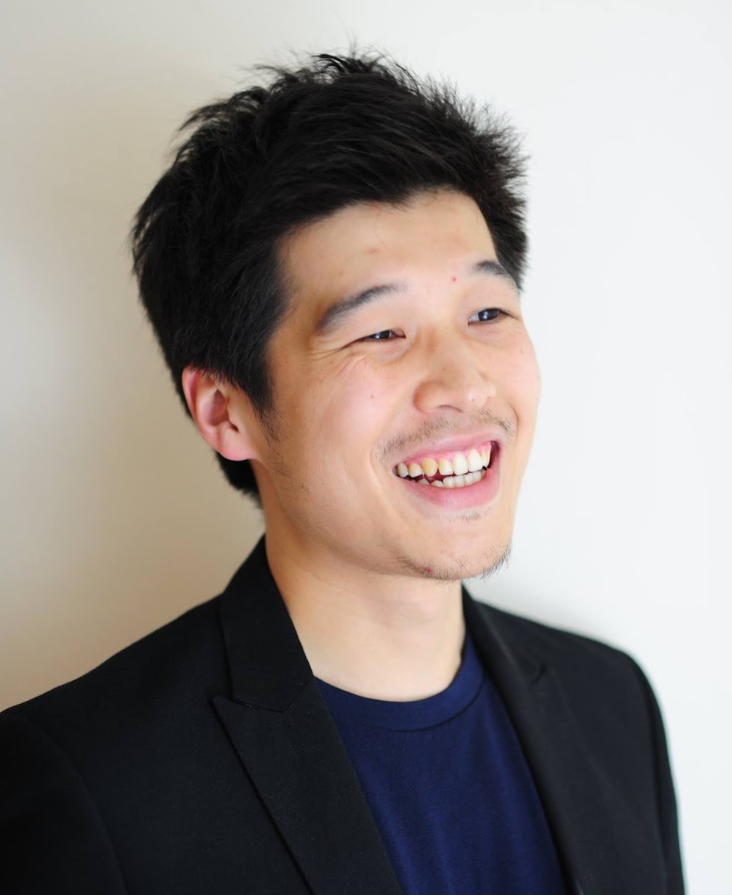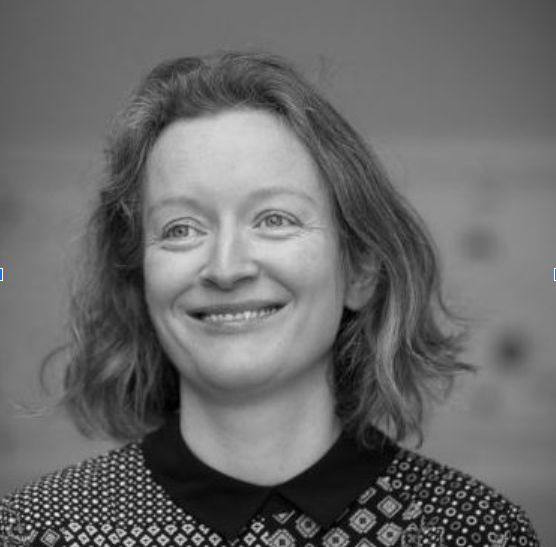Programme
The 2023 CHiME Workshop will take place on August 25, 2023 at the Meta offices on Serpentine Ave in the Ballsbridge neighborhood of Dublin.
The Programme will consist of
| 8:00 | Breakfast |
| 8:30-8:45 | Welcome Message from the Steering Committee |
| 8:45-9:30 | First Keynote |
| 9:30-10:00 | Task overview presentations |
| 10:00-10:15 | Break |
| 10:15-11:15 | Top systems presentations |
| 11:15-12:00 | Second Keynote |
| 12:00-14:00 | Posters & Lunch* (Each poster presented for half the time) |
| 14:00-15:00 | CHiME-2024 challenge pitching sessions & Discussion of future directions |
| 15:00-15:15 | Closing |
*Presenters who need to leave early, please let us know.
Keynote 1
- Wei-Ning Hsu, Research Scientist, Meta Foundational AI Research
Multimodal and Large-Scale Generative Models for Enhancement
Keynote 2
- Naomi Harte, Professor in Speech Technology, Trinity College Dublin
Understanding Speech in Everyday Environments – Is Multimodality the Answer?
Task overview presentations
| Time | Title | Authors |
| 9:30-9:45 | The CHiME-7 DASR Challenge: Distant Meeting Transcription with Multiple Devices in Diverse Scenarios | Samuele Cornell (Università Politecnica delle Marche); Matthew S Wiesner (Johns Hopkins University); Shinji Watanabe (Carnegie Mellon University); Desh Raj (Johns Hopkins University); Xuankai Chang (Carnegie Mellon University); Paola Garcia (Johns Hopkins University); Yoshiki Masuyama (Tokyo Metropolitan University); Zhong-Qiu Wang (Carnegie Mellon University); Stefano Squartini (Università Politecnica delle Marche); Sanjeev Khudanpur (Johns Hopkins University) |
| 9:45-10:00 | The CHiME-7 UDASE task: Unsupervised domain adaptation for conversational speech enhancement | Simon Leglaive (CentraleSupélec, IETR); Léonie Borne (Pulse Audition); Efthymios Tzinis (University of Illinois at Urbana-Champaign); Mostafa Sadeghi (INRIA); Matthieu Fraticelli (Ecole Normale Supérieure, PSL University, CNRS); Scott Wisdom (Google); Manuel Pariente (Pulse Audition); Daniel Pressnitzer (Ecole Normale Supérieure, PSL University, CNRS); John Hershey (Google) |
Top systems presentations
| Time | Title | Authors | Track |
| 10:15-10:30 | The USTC-NERCSLIP Systems for CHiME-7 Challenge | Ruoyu Wang (University of Science and Technology of China); Maokui He (University of Science and Technology of China); Jun Du (University of Science and Technology of China); Hengshun Zhou (University of Science and Technology of China); Shutong Niu (University of Science and Technology of China ); Hang Chen (USTC); Yanyan Yue (University of Science and Technology of China); Gaobin Yang (University of Science and Technology of China); Shilong Wu (University of Science and Technology of China); Lei Sun (iFlytek); Yanhui Tu (iFlytek); Haitao Tang (iFlytek); Shuangqing Qian (iFlytek); Tian Gao (iFlytek Research); Mengzhi Wang (iFlytek Research); Genshun Wan (iFlytek); Jia Pan (iFlytek Research); Jianqing Gao (iFlytek Research); Chin-Hui Lee (Georgia Institute of Technology) | Challenge Task1 DASR |
| 10:30-10:45 | The NWPU-ByteAudio System for CHiME-7 Task 2 UDASE Challenge | Zihan Zhang (Northwestern Polytechnical University); Runduo Han (Northwestern Polytechnical University); Ziqian Wang (Northwestern Polytechnical University); Xianjun Xia (RTC Lab, ByteDance); Yijian Xiao (Bytedance); Lei Xie (NWPU) | Challenge Task 2 UDASE |
| 10:45-11:00 | The IACAS-Thinkit System for CHiME-7 Challenge | lingxuan ye (Key Laboratory of Speech Acoustics and Content Understanding, Institute of Acoustics); haitian lu (Key Laboratory of Speech Acoustics and Content Understanding, Institute of Acoustics); Gaofeng Cheng (Key Laboratory of Speech Acoustics and Content Understanding, Institute of Acoustics); yifan chen (Key Laboratory of Speech Acoustics and Content Understanding, Institute of Acoustics); Zengqiang Shang (The Institute of Acoustics of the Chinese Academy of Sciences ); xuyuan li (Key Laboratory of Speech Acoustics and Content Understanding, Institute of Acoustics) | Challenge Task1 DASR |
| 11:00-11:15 | MeetEval: A Toolkit for Computation of Word Error Rates for Meeting Transcription Systems | Thilo von Neumann (Paderborn University); Christoph B Boeddeker (Paderborn University); Marc Delcroix (NTT); Reinhold Haeb-Umbach (University of Paderborn) | Non-challenge papers |
Posters
| Time | Poster ID | Title | Authors | Track |
| 12:00-13:00 | 1 | The University of Sheffield CHiME-7 UDASE Challenge Speech Enhancement System | George L Close (University of Sheffield); William Ravenscroft (The University of Sheffield); Thomas Hain (University of Sheffield); Stefan Goetze (University of Sheffield) | Challenge Task 2 UDASE |
| 13:00-14:00 | 2 | The SGU Systems for the CHiME-7 UDASE Challenge | JAEHOO JANG (Sogang university); Myoung-Wan Koo (Sogang University) | Challenge Task 2 UDASE |
| 12:00-13:00 | 3 | NTT Multi-Speaker ASR System for the DASR Task of CHiME-7 Challenge | Naoyuki Kamo (NTT); Naohiro Tawara (NTT); Kohei Matsuura (NTT); Takanori Ashihara (NTT Corp.); Takafumi Moriya (NTT); Atsunori Ogawa (NTT Corporation); Hiroshi Sato (NTT Corporation); Tsubasa Ochiai (NTT); Atsushi Ando (NTT Corporation); Rintaro Ikeshita (NTT); Takatomo Kano (NTT Corporation); Marc Delcroix (NTT); Tomohiro Nakatani (NTT Communication Science Laboratories, NTT Corporation); Taichi Asami (NTT); Shoko Araki (NTT Corporation) | Challenge Task1 DASR |
| 13:00-14:00 | 4 | Multi-stage diarization refinement for the CHiME-7 DASR scenario | Christoph B Boeddeker (Paderborn University); Tobias Cord-Landwehr (Paderborn University); Thilo von Neumann (Paderborn University); Reinhold Haeb-Umbach (University of Paderborn) | Challenge Task1 DASR |
| 12:00-13:00 | 5 | The CHiME-7 Challenge: System Description and Performance of NeMo Team’s DASR System | Tae Jin Park (NVIDIA); He Huang (NVIDIA); Ante Jukić (NVIDIA); Kunal Dhawan (NVIDIA); Krishna C Puvvada (NVIDIA); Nithin Rao Koluguri (NVIDIA); Nikolay Karpov (NVIDIA); Aleksandr Laptev (NVIDIA, ITMO University); Jagadeesh Balam (NVIDIA); Boris Ginsburg (NVIDIA) | Challenge Task1 DASR |
| 13:00-14:00 | 6 | The NPU System for DASR Task of CHiME-7 Challenge | Bingshen Mu (Northwestern Polytechnical University); Pengcheng Guo (Northwestern Polytechnical University); He Wang (NWPU); Yangze Li (Northwestern Polytechnical University); Yang Li (Space AI, Li Auto); Pan Zhou (Space AI, Li Auto); wei Chen (Space AI, Li Auto); Lei Xie (NWPU) | Challenge Task1 DASR |
| 12:00-13:00 | 7 | BUT CHiME-7 system description | Martin Karafiat (BUT speech@fit); Karel Veselý (Brno University of Technology); Igor Szoke (Brno University of Technology); Ladislav Mosner (Brno University of Technology); Karel Benes (Brno University of Technology); Marcin Witkowski (Akademia Górniczo-Hutnicza im. Stanisława Staszica w Krakowie); Ricardo German Barchi (Departamento de Computación, FCEyN, Universidad de Buenos Aires (UBA)); Leonardo D Pepino (Universidad de Buenos Aires) | Challenge Task1 DASR |
| 13:00-14:00 | 8 | The University of Cambridge System for the CHiME-7 DASR Task | Keqi Deng (University of Cambridge); Xianrui Zheng (University of Cambridge); Phil Woodland (Machine Intelligence Laboratory, Cambridge University Department of Engineering) | Challenge Task1 DASR |
| 12:00-13:00 | 9 | Do We Hyperarticulate on Zoom? | Sam O’Connor Russell (Trinity College Dublin); Ayushi Pandey (Trinity College Dublin); Naomi Harte (Trinity College Dublin) | Non-challenge papers |
| 13:00-14:00 | 10 | Property-Aware Multi-Speaker Data Simulation: A Probabilistic Modelling Technique for Synthetic Data Generation | Tae Jin Park (NVIDIA); He Huang (NVIDIA); Coleman Hooper (NVIDIA); Nithin Rao Koluguri (NVIDIA); Kunal Dhawan (NVIDIA); Ante Jukić (NVIDIA); Jagadeesh Balam (NVIDIA); Boris Ginsburg (NVIDIA) | Non-challenge papers |
| 12:00-13:00 | 11 | STCON System for the CHiME-7 Challenge | Tatiana Prisyach (STCON LLC.); Yuri Khokhlov (STCON LLC.); Maxim Korenevsky (Speech Technology Center); Anton Mitrofanov (STCON LLC.); Tatiana Timofeeva (STCON LLC.); Ilia Odegov (STCON LLC.); Rauf Nasretdinov (STC); Iurii Lezhenin (STCON LLC.); Dmitriy Miroshnichenko (STCON LLC.); Arsenii Karelin (STCON LLC.); Mariya Mitrofanova (STCON LLC.); Roman Svechnikov (STCON LLC.); Sergey Novoselov (ITMO University); Aleksei Romanenko (STCON LLC.) | Challenge Task1 DASR |